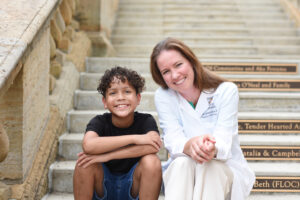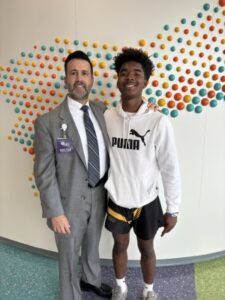Adi Thomas
strep, strength and second chances
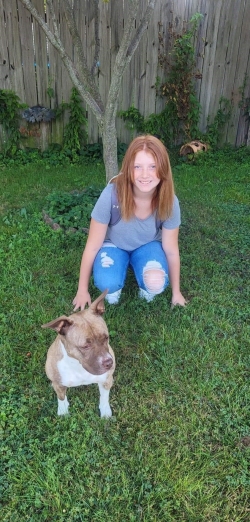
- patient name: Adi Thomas
- patient age: 13
- condition: invasive group A strep
- seen in: pediatric intensive care unit; neurosurgery, inpatient rehab
Adi Thomas, 13, had been experiencing a headache for a few weeks. But with no fever or other concerning symptoms, her mom, Rachel, did her best to keep her hydrated but wasn’t overly concerned.
But soon, Adi was not only having a headache, but extreme fatigue, sleeping almost entire days at a time. Rachel decided to take her to a local hospital to get checked out. It was during her initial exam that Adi became unresponsive. The team in the emergency department quickly ran tests to understand Adi’s condition. Adi tested positive for influenza A, but there was even more going on. An MRI scan revealed that she also appeared to have an infection in her brain.
With these results, the team transferred Adi to Dayton Children’s Hospital where she was immediately put on a ventilator and admitted to the pediatric intensive care unit (PICU). The symptoms Adi had been experiencing appeared to be from a strep infection that was causing her brain to swell. According to Kids Health, this condition is referred to as Group A invasive strep, which occurs when the strep bacteria infects a part of the body where the bacteria don’t usually live–in this case, Adi’s brain.
To help manage the swelling in her brain, the Dayton Children’s neurosurgery team performed a craniotomy to give her skull some more room to expand. With this surgery complete and rounds of medication, Adi began to improve.
“the staff in the PICU were so incredible,” said Rachel. “They were there for Adi, but they were also there for us as her parents and as her family.”
In total, Adi spent 22 days in the PICU. But her recovery did not end there. From the PICU, Adi moved to the hospital’s seventh floor to inpatient rehab, which had recently opened its doors on September 6, 2022, where she was one of the unit’s first patients.
The inpatient rehabilitation program at Dayton Children’s Hospital offers patients comprehensive care and therapies to help them recover from a severe injury or illness. The care team creates personalized treatment plans to meet the unique needs of our patients and works closely with a multidisciplinary team to optimize recovery and maximize their quality of life. The program also includes intervention from specialty services such as psychology, nutrition, child life, music therapy, educator, social work and of course the medical physician and nursing team.
When Adi first arrived at inpatient rehab, she was conscious, but barely able to communicate, raising her left finger to say ‘yes’ or ‘no.’
As she regained strength, Adi met with caregivers from occupational therapy, speech therapy and physical therapy to help her relearn skills. And two months later, Adi was strong enough to be discharged after spending a total of 88 days at the hospital.
“The nurses and doctors in inpatient rehab rallied behind our family,” said Rachel. “The team talked directly to her and engaged with her in conversation, which went a long way for Adi.”
Adi has regular appointments with the therapy teams and continues to make strides every week.
“We still have a way to go,” said Rachel. “But, we’re focusing on progress over perfection.”
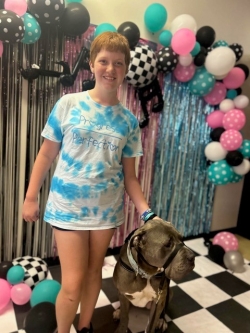
share your story
Every patient journey at Dayton Children’s is powerful — from NICU miracles to courageous cancer survivors and beyond. These patient stories not only celebrate our families but also offer hope and encouragement to others facing similar challenges. Share your experience today and help inspire, support, and celebrate the strength of our patients and families.
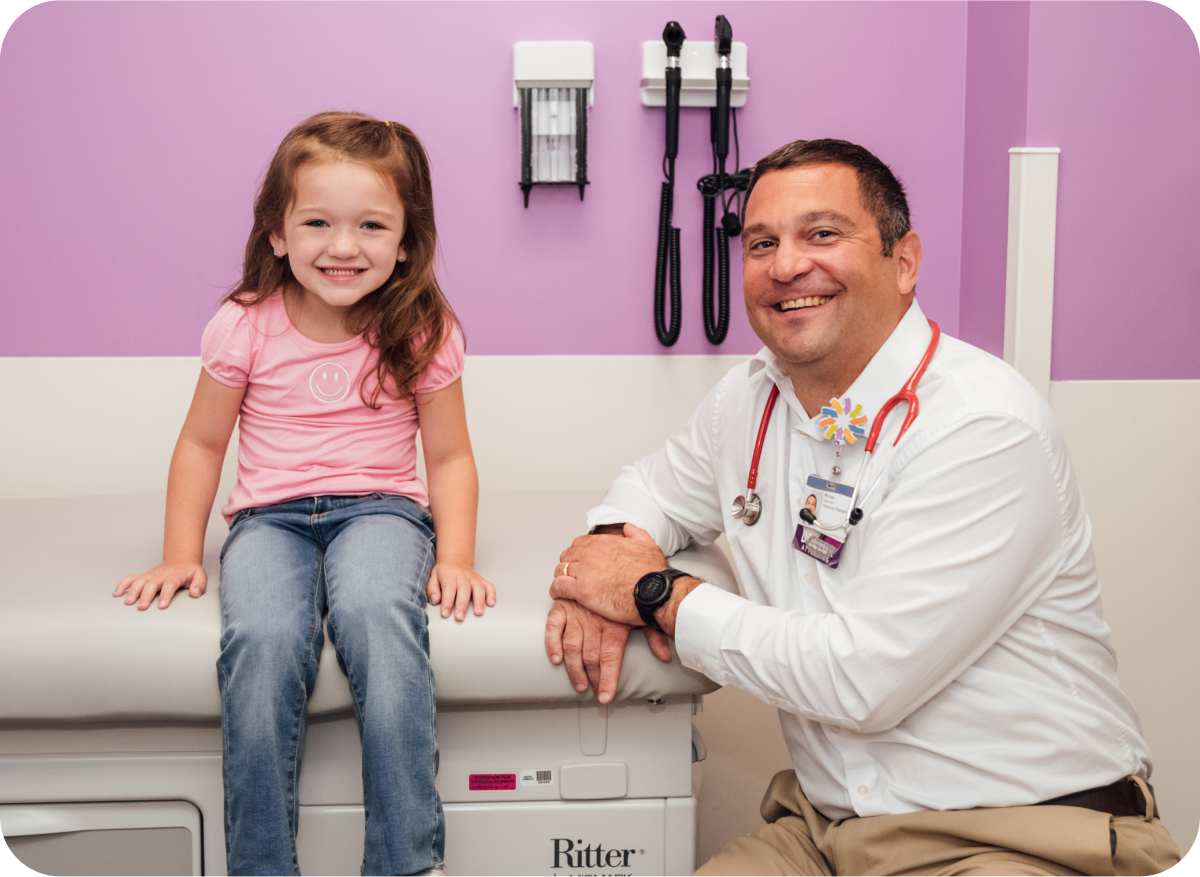
care that goes above and beyond
Because every child deserves care that goes above and beyond, Dayton Children’s provides compassionate, expert care for kids of all ages. Find a provider, schedule an appointment, or learn more about conditions we treat today.

